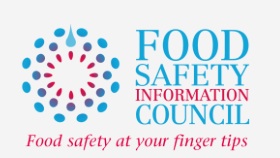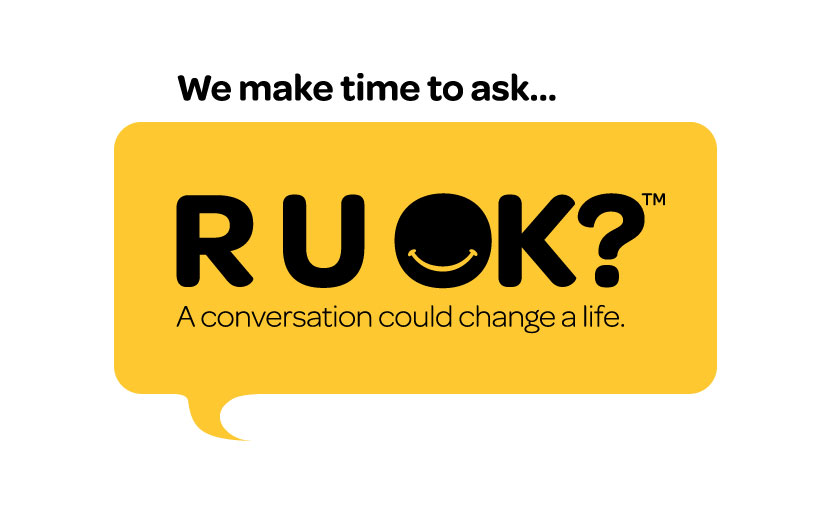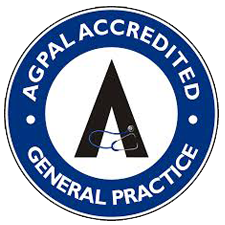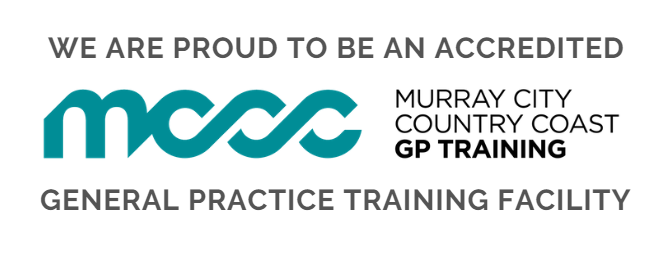The Pap Test has changed. More accurate. Less often.

Download the information brochure here.
Cervical Screening Test
Cervical screening has changed in Australia. The Pap test has been replaced with a new Cervical Screening Test every five years. The latest medical and scientific evidence shows that having a Cervical Screening Test every five years is just as safe, and is more effective than having a Pap test every two years. The test is a quick and simple procedure to check the health of your cervix.
For you, if you have ever had a Pap test before, the way the test is done will look and feel the same. The procedure might be a bit uncomfortable, but it shouldn’t hurt. If it hurts, tell your doctor straight away.
Remember, you can always ask for a female clinician.
Your cervix is the opening of the uterus (neck of the womb), and is at the top of your vagina.
How is the Cervical Screening Test more accurate?
Although it will feel the same for you, the way your sample is stored and tested is different. The latest medical and scientific evidence shows the new Cervical Screening Test is more effective at detecting the human papillomavirus (HPV) that causes cervical abnormalities, at an earlier stage.
Cervical cancer is rare and it usually takes 10 years for abnormalities caused by this virus to develop into cervical cancer.
It is expected that the changes to the National Cervical Screening Program will protect up to 30% more women from cervical cancer. An increased understanding of cervical cancer and the changes made to the test means you can be confident.
The new Cervical Screening Test is a more accurate, effective and safe test to have every five years instead of the two yearly Pap test.
Your doctor will receive your results about two weeks after your test and may contact you to talk about your results.
Do I need a Cervical Screening Test?
If you are a woman aged 25-74 years of age and have ever been sexually active you should have a Cervical Screening Test every five years until the age of 74.
Your first Cervical Screening Test is due at 25 years of age or two years after your last Pap test. If your result is normal you will be due in five years to have your next test.
Every year around 800 Australian women are diagnosed with cervical cancer, however most cervical cancer is preventable with regular screening.
Where can I get more information?
If you have any questions about the new Cervical Screening Test, book an appointment to talk with your doctor.
Find out more about the Cervical Screening Test at cancerscreening.gov.au/cervical or call 13 15 56.
The National Cervical Screening Program is a joint Australian, State and Territory Government Program.
If English is not your first language and you need help, for the cost of a local call, please phone the Translating and Interpreting Service (TIS) on 13 14 50.
At any age – If you have symptoms such as abnormal vaginal bleeding, pain or discharge, you should see your doctor immediately.
Christmas Appeal

Over the past 26 years Target and UnitingCare have joined forces every Christmas offering support and gifts to people of all ages. Target and UnitingCare have collected over 2.1 million gifts in total bringing a lot of happiness to a lot of people who for various reasons are unable to celebrate Christmas with gifts.
Target launches the campaign in early November so please if you are in a position to donate to this campaign do so by leaving a gift at your Target store. Help bring a smile to someone less fortunate on Christmas day.
Christmas/New Year Opening Hours

Christmas/New Year
Please note we will be closed on the following days:
Monday 25th December
Tuesday 26th December
Monday 1st January
We will be open Wednesday 27th, Thursday 28th and Friday 29th however these will be for emergency appointments only. We will have multiple doctors away on those dates so we will not be making routine bookings unless requested by your doctor. If you know you will be needing scripts during this time please make an appointment prior to the Christmas period to make sure that you are not without medication over the break.
We would like to take this opportunity to thank you all for allowing us to provide care to you and your families throughout 2017. We wish you all a safe, happy and healthy festive season and beyond.
Practice Changes in 2018

In 2018 we will be sorry to say farewell & good luck to three of our GP’s.
Dr Anthony Weller will be leaving us (and the district) in mid January after making the move to Mildura in 2010 and spending the last 8 years at Ontario Medical Clinic initially full time and then part time along with his teaching at Monash Medical School. His care for his patients and his contribution in educating our future doctors will be greatly missed.
We are also sad to say goodbye to our Registrars Dr Joelene Lau and Dr Eva Curley who have spent the last 12 months here at Ontario Medical Clinic. They are also leaving Mildura to continue their training elsewhere. Dr Curley and Dr Lau will also be finishing mid to late January.
We would like to thank all three of them for their wonderful contributions to our clinic and we wish them well in their new clinics and towns.
In early February we will be welcoming Dr Lavanya Duggirala and Dr Rasin Bhuiyan. Dr Duggirala is currently working in Mildura and Dr Bhuiyan will be joining us from Melbourne. We are also hoping to add another full time female GP in early March and we will let you know once this has been confirmed.
AUSTRALIAN FOOD SAFETY WEEK – 11th-18th November, 2017

The food Safety Information Council is a health promotion charity that aims to help reduce the estimated 4.1 million cases of food poisoning in our community every year. The food Safety Information Council aims at promoting awareness and providing education to reduce this number. Food regulations in Australia can only help with food safety up to the time it reaches the consumer, after that it is up to us.
A few basic rules to follow that will help reduce food poising and other diseases are:
WASH HANDS- It is very important to wash your hands properly before and frequently during food preparations. Wet your hands and rub together well to build up a good lather with soap to help carry bugs away. You must wash your hands for at least 20 seconds ensuring to wash between your fingers. Dry them properly.
WASH UTENSILS– Washing utensils properly with warm soapy water and drying thoroughly is another important process especially when handling raw meats and vegetables.
REFRIGERATION– As soon as possible after purchasing meat, poultry, dairy foods, vegetables/salad products place them straight into a fridge, ideally at or below 5 degrees.DO NOT LEAVE IN A HOT CAR. It is also vital to refrigerate leftovers promptly making sure it is covered.
COOK FOOD PROPERLY– Cook chicken, mince, hamburgers, stuffed meats and sausages right through until they reach 75 degrees. Meat should also be defrosted thoroughly before cooking.
CROSS-CONTAMINATION– Cross contamination is a major way food borne disease spreads. To avoid this keep raw and cooked foods separate when storing and preparing. A good habit is to place raw meats and poultry in containers at the bottom of the fridge ensuring the juices don’t contaminate food on lower shelves. NEVER put cooked meat on a plate raw meat was on.
WORLD ANTIBIOTIC AWARENESS WEEK – 13th-19th November, 2017
Antibiotics resistance is an increasingly serious threat to global health and human development. Antibiotics only work on bacteria, not infections like viruses that cause colds and flu. Taking an antibiotic when it’s not needed will not make a significant difference to how you feel or how fast you recover. The more often antibiotics are used or taken incorrectly the more chance bacteria have to change and become resistant to them. This can make bacterial infections much harder to treat.
The situation is rising to dangerously high levels in all parts of the world, compromising the ability to treat infectious diseases and putting people everywhere at risk.
There are actions that you can take to reduce the chance of resistance developing:
*Take the prescribed dose and complete the whole course of treatment prescribed by your doctor. Even if you are feeling better, taking the whole course reduces the chance that some bacteria will survive and become resistant.
*Don’t share antibiotics with another person. This is important because the type of antibiotic may not be targeted to the bacteria causing their infection.
*Don’t keep leftovers. The dose and amount leftover may not be enough to destroy a new infection, creating more opportunity for resistant bacteria to develop and multiply.
The week concentrates on raising awareness of the issue that is becoming more serious in our communities. It is not too late to reduce the impact of antibiotic resistance and we all have a part to play in preserving the effectiveness of antibiotics.
Antibiotics are a precious resource, we need to handle them with care.
SENIORS WEEK
8th-14th October 2017
Seniors week is about celebrating people 55 and over and the contributions they make to our community. The Mildura region is offering activities throughout the week that are free or inexpensive to help encouraged our seniors to GET OUT and GET INVOLVED!! Why not try something new.
More detailed information can be found on the following link:
http://www.mildura.vic.gov.au/Calendar-of-Events/2017-Seniors-Festival
BANDANNA DAY- CANTEEN
Friday 27th October, 17
Bandanna Day is a fundraiser that focuses on supporting young people living with cancer. Every year, another 23,000 young people (63 a day) have to deal with the challenge of cancer.
Ontario Medical Clinic are supporting this wonderful cause and you can too by buying some merchandise at our front desk. Other ways you may like to help is by donating online or hosting a fundraiser yourself.
Money raised allows CanTeen to provide practical and emotional support for young people.
$50- Will help pay for one young person to attend a CanTeen Recreation Day and have a break from the daily pressures of living with cancer.
$100- Will help pay for one young person who has lost a parent or sibling to cancer to attend a weekend program where they learn to understand grief and develop skills to manage it.
$350- Will enable two young people living with cancer to have an hour long face-to-face counselling session.
$500- Will enable two young people to attend a one-night New Member Program to get a taste of what a CanTeen program involves and start connecting with others going through similar experiences.
National Stroke Week: 4-10th September 2017
The Stroke Foundation is a national charity that partners with the community to prevent, treat and beat stroke. They are the voice of stroke in Australia and work to:
-Raise awareness of the risk factors, signs of stroke and promote healthy lifestyles.
-Improve treatment for stroke to save lives and reduce disability.
-Improve life after stroke for survivors.
-Encourage and facilitate stroke research.
-Advocate for initiatives to prevent, treat and beat stroke.
-Raise funds from the community, corporate sector and government to continue our mission.
The Stroke Foundation is aiming to ensure Australian households know the signs of stroke and to to call 000 when they see the first signs of stroke symptoms.
F.A.S.T: SIGNS OF STROKE
*FACE- Check their face. Has their mouth drooped?
*ARMS- Can they lift both arms?
*SPEECH– Is their speech slurred? Do they understand you?
*TIME– Time is critical. If you see any of these symptoms act FAST and call 000
Paramedics, nurses and doctors can only help if the FAST response is implemented at the first sign of stroke.
TIME IS CRITICAL IN TREATING STROKE
STROKE IS ALWAYS A MEDICAL EMERGENCY.
R U OK?? Thursday 14th September 2017

R U OK day is a way to encourage and empower people to connect with others around them and support anyone that may be struggling with life. It is as simple as asking someone ‘R U Ok?’ and with this question you could possibly change someone’s life. It is often our gut feeling that may pick up that someone is not doing so well. Perhaps they are just not themselves and you’ve noticed a change in their behavior. Start the conversation and comment on the changes you have noticed. You may help them by showing them you are supportive and help them initiate the first steps in finding strategies. If they are ok, that person will know you’re someone who cares enough to ask.
R U OK day encourages people to start these conversations every day of the year not just on this particular day. You have got what it takes to make a difference.
Four simple steps may make a huge difference in a life:
- Ask
- Listen
- Encourage Action
- Check in
We like to pride ourselves at Ontario Medical Clinic on being one supportive workplace family which is why we encourage R U OK day.




